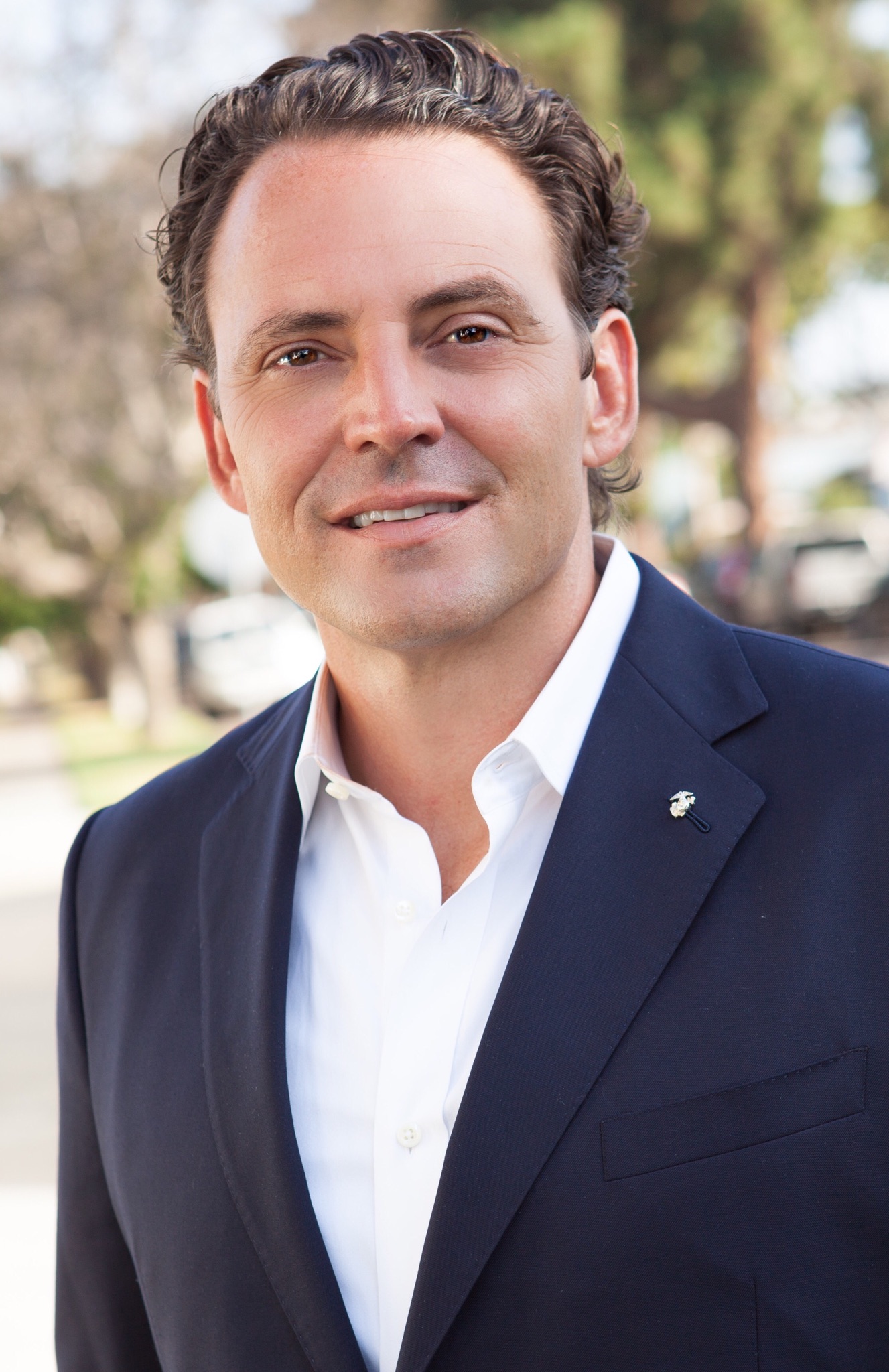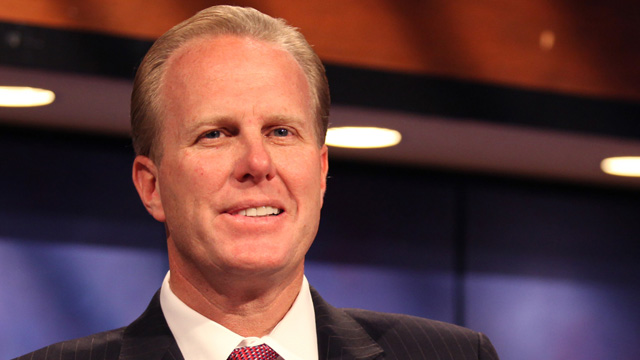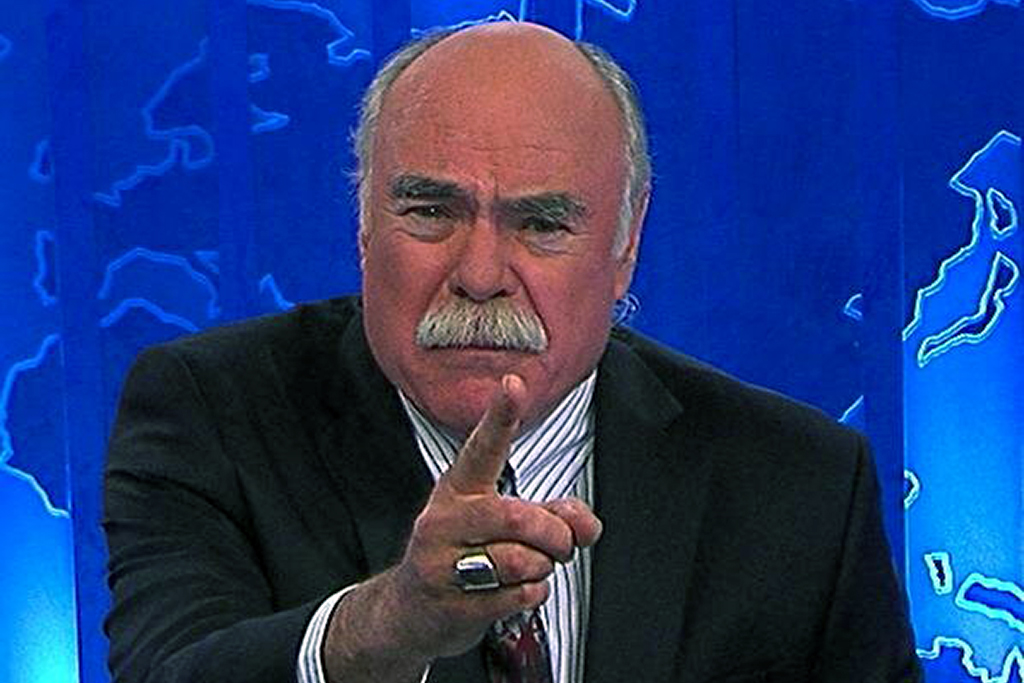Fixing Homelessness, Not Hep A, Needs to be San Diego's Endgame

Homelessness had become epidemic long before an outbreak of hepatitis A killed 18 San Diegans and hospitalized nearly 500 others this year. Politicians ignored the former and now the latter—transmitted through contact with infected human feces—has hit the fan.
Now, there’s a scramble on to contain the virus. And while hepatitis A has spawned greater focus on the over-arching problem—homelessness—the question remains as to whether political attention will wane once the outbreak is under control.
Witness now the political posturing and finger pointing.
One financial issue being bandied: the availability of $200 million from the city and $150 million from the county, offered not long ago to help fund construction of a new stadium for the then-San Diego Chargers. Why can’t those funds—if they were even available in the first place—be directed at homelessness?
“It’s time for action,” said Nathan Fletcher, twice a loser in bids to become mayor of San Diego and is now a candidate for a seat on the San Diego County Board of Supervisors. During an October 11 rally attended by a bevy of local and state legislators (mostly Democrats), Fletcher intimated the county was not paying its fair share to fight the hepatitis A outbreak.

Nathan Fletcher - Board of Supervisors Candidate
Fletcher seeks to fill the seat being vacated by Supervisor Ron Roberts, who tweeted in response: “Perhaps the city should spend its own $200 million targeted for the Chargers stadium before they or a perennial political candidate start asking others to do their job for them.”
Added Dianne Jacob, chair of the County Board of Supervisors: “This is nothing more than an attempt to shift the responsibility to the county for a homeless problem that has festered in the city for years.”
Read between the lines. Politicians know there is a homeless problem, admit there may be funding available to address it, but don’t want to pry it out of their own coffers.
After the hepatitis A scare is over, there will still be thousands of unsheltered San Diegans. It shouldn’t have taken the outbreak of Third World disease to raise the collective consciousness. Unfortunately, advocation for long-term solutions to abate homelessness has become white noise. San Diego’s official 2017 count of homeless individuals spiked at 9,116, ranking the city fourth in the country behind only New York, Los Angeles and Seattle.
That didn’t set off warning bells or become an immediate call to action for San Diego Mayor Kevin Faulconer. The embarrassment of an internationally reported public health crisis did. Now, questioned by media outlets about what led up to the hepatitis outbreak, the mayor says he’s not going to look backward on this issue, rather, he’s leaning forward to seek fixes.

Mayor Kevin Faulconer
If Mayor Faulconer did look over his shoulder, he might glimpse how his administration: restricted availability of public bathrooms; built a jagged rock garden so people couldn’t sleep under a certain bridge; had police dissuade religious groups from distributing food (especially leading up to the MLB All-Star Game held in downtown San Diego); and criminalized homelessness by having cops ticket and arrest homeless individuals.
Expediency is the bedfellow of tragedy, though. Now that hepatitis A has leapt out of the homeless community and sickened other sectors of the citizenry, new hand-washing stations and Porta Potties have appeared; crews are power-washing city streets with bleach; vaccines are being distributed; and a downtown safe area for camping tents has sprung up while the city works to procure much larger group tents to be erected at three locations.
* * *
These are all much-needed steps—as the demand for more public bathroom facilities became the talk of the town. If you caught the September 28 “Turko Files” segment on KUSI-TV you would have gotten an earful about businesses in Hillcrest dealing with human waste left in alleys behind their stores.

Michael Turko, "The Turko Files" KUSI
The Hillcrest store owners’ gripes were legitimate, and KUSI consumer advocate Michael Turko got on the case. Turko regularly opens files for viewers who notify him about unfilled potholes, missing street crosswalks or contractors who are scamming homeowners. Turko’s trademark catchphrase is “It Ain’t Right!”
Turko has aired his consumer advocacy for the better part of two decades on KUSI, a local independent station not affiliated with a national network. To some, he is a hero (albeit one whose own segments usually canonize him as such). While some characterize KUSI as right-leaning, the station does have the most veteran team of regional reporters and anchors, and spends more time on balanced, in-depth local political reportage—including homelessness issues—than any San Diego network affiliate.
What ain’t right about Turko’s recent piece, however, was the presentation of an us-versus-them battle between hard-working citizens and the “hardcore homeless.” He made little mention of politics and threw shade at the entire homeless population.
Turko introduces the hepatitis A outbreak in his segment and bellows: “It’s being spread by contact with human feces, left behind in public places by homeless bums. Merchants in Hillcrest tell me they need city sanitizing crews there because their neighborhood is infested by the hardcore homeless!”
Cue the b-roll of apparent homeless individuals. One villain is pushing what appears to be his belongings in a shopping cart; another looks forlorn leaning against a brick building; and a seemingly despondent man sits on the sidewalk rocking back and forth like a Rhesus monkey deprived of maternal comfort. Is this homeless bum plotting to go leave his feces somewhere public? Probably, according to the narrative pushed in Turko’s voiceover.
“It’s suddenly fashionable to call people living on the streets ‘unsheltered,’ and talk about how we can get them some help,” he intones. “But the people who really need help right now are the Hillcrest business owners.”
Surely, he’ll concede that the “unsheltered” deserve some help, too?
Nope. “Two-thirds of the hepatitis victims are the so-called unsheltered,” Turko proclaims. “But the other third are ordinary people like you and me, who somehow came in contact with infected human feces.”
Harsh. Tone deaf at best.
Turko’s take might remind you of a certain silk-suited character mentioned in Bruce Hornsby’s song “The Way It Is,” which begins: “Standing in line, marking time / Waiting for the welfare dime / ’Cause they can’t buy a job / The man in the silk suit hurries by / As he catches the poor old lady’s eyes / just for fun he says, “Get a job.”
Or in this case: Get a house / with a toilet.
Turko did not return a phone call or an email requesting clarification on his sweeping demonization of unsheltered San Diegans.
* * *
Included among San Diego’s 9,000-plus homeless individuals—keep in mind, this is the number of people who were found and counted on one night—are more than 1,000 veterans, many of whom suffer from post-traumatic stress disorder. Are unsheltered vets hardcore homeless who are bums and not ordinary people like you and me?
One former member of the so-called hardcore homeless was the late mother of Republican Lorie Zapf, the current San Diego City Councilmember who represents the beach communities of District 2. Just this month, Zapf delivered an emotional speech in which she acknowledged her mom’s hardship for the first time.

Lorie Zapf, San Diego City Councilmember
“What I didn’t realize in my early 20s was that she suffered from mental illness that drove her to alcohol addiction,” Zapf later wrote in an op-ed published in The San Diego Union-Tribune. “The ever-present bottle of vodka was her coping mechanism. Nobody recognized the underlying cause and so she never received the treatment she needed. It was the late 1960s and early 1970s and there was a stigma about mental issues. Mental illness never crossed anyone’s mind as the real problem.
“Once a beautiful young woman, she destroyed her liver and kidneys, lost all her teeth and was homeless when she died at age 44. Walking the streets of downtown, I see people who are a painful reminder of the last time I saw my mom alive, wondering how they ended up that way and if it could have been prevented with intervention.”
Laurie Black has a similar story. Former chief of staff to Democratic Congresswoman Lynn Schenk and herself a former San Diego Port Commissioner, Black also once helmed the business consortium Downtown San Diego Partnership. In that post, Black recalls being told by a board member back in 1998 that it was her job to “get rid of the urine-stained bums in downtown.”
Black fumed. Her youngest brother, a light-hearted and loving soul, was a paranoid schizophrenic who heard voices in his head that told him to hurt himself; to jump off the Coronado Bridge. Black’s brother suffered through homeless stints; one time she found him living in an abandoned flat where he was heating the room by leaving the oven on all night.
“The business community should have a role in helping others who can’t help themselves,” Black said. “These people who talk to the trees, and believe they hear the trees talking back—they’re people. Like my brother.”
Unsheltered or not, a deadly disease is currently sickening and striking down mothers, brothers, veterans and hundreds of San Diegans. Medical experts can’t predict when the hepatitis A outbreak will be contained; it could take months. In the meantime, it would be shortsighted to believe the endgame is quashing the virus. The goal should be finding ways to get our neighbors out of tents and into affordable housing where their addictions and infirmities can be addressed.
Study after study shows that putting a roof over homeless individuals and wrapping them with supportive services—as opposed to doing nothing and paying for the continual medical and policing costs incurred by the chronically homeless—saves taxpayer money over the long run.
At the very least, if politicians can’t find the compassion that would lead to financial support of humanitarian aid, and are of the belief that a percentage of our unsheltered neighbors are nothing more than bums—undeserving of sympathy—consider this: Whatever number of mothers, brothers and veterans who can be lifted up off the streets will account for that much less shit left behind for ordinary people like you and me to sidestep.



